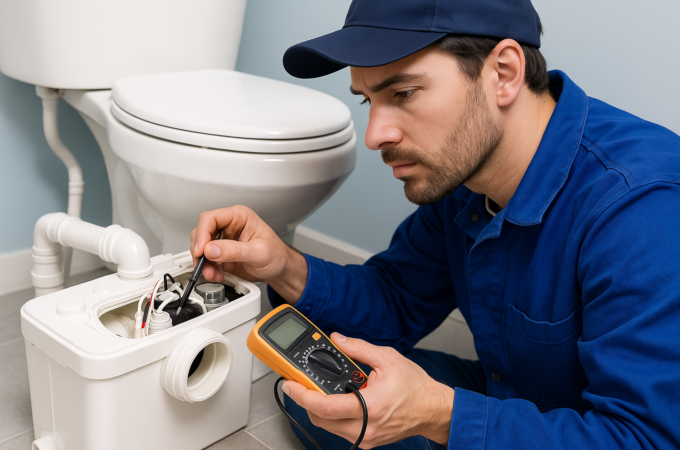
What Causes Gas Leaks in Air Conditioning Systems and How to Fix Them
Air conditioning systems play a vital role in maintaining comfort in homes and workplaces, particularly in Australia’s warm climate. However, these systems can face various issues over time, and one of the more serious problems is a gas leak. A refrigerant gas leak compromises the cooling efficiency, leads to increased energy costs, and can pose safety risks if left untreated. It is important to understand what causes gas leaks in air conditioning systems and how to fix them to maintain system performance and safety.
In this article, we will explore the most common causes of gas leaks, how to identify them, and the best ways to repair these leaks. Additionally, we will explain why it is essential to engage a qualified Electrician in Campbelltown for professional air conditioner repair. The aim is to provide clear and practical information for homeowners and businesses to keep their air conditioning systems running smoothly.
What Is a Gas Leak in an Air Conditioning System?
A gas leak in an air conditioning system occurs when the refrigerant gas that circulates within the unit escapes due to damage or failure in the system’s components. The refrigerant is responsible for absorbing heat from inside the property and releasing it outside, enabling cooling. When the refrigerant leaks, the system’s ability to cool is reduced, often causing the air conditioner to work harder and consume more electricity. Moreover, some refrigerants can be harmful to health and the environment if released uncontrolled, making prompt repair essential.
Common Causes of Gas Leaks in Air Conditioning Systems
There are several reasons why gas leaks may develop in air conditioning units. These causes can be due to the age of the system, environmental factors, installation issues, or accidental damage.
Wear and Tear Over Time
Air conditioning systems experience natural wear and tear as they age. Continuous operation causes metal components, including pipes, fittings, and valves, to weaken. This can lead to the formation of tiny cracks or holes where refrigerant gas can escape. The older the system, the more susceptible it is to developing leaks as seals and joints degrade.
Corrosion Caused by Environmental Exposure
Corrosion is another frequent cause of gas leaks, especially in areas with high humidity or salty air, such as coastal regions. Moisture and environmental pollutants react with metal components of the air conditioner, causing rust and corrosion. Over time, this corrosion eats away at the pipes and coils, creating leak points that allow refrigerant to escape.
Faulty Installation or Lack of Maintenance
A poorly installed air conditioning system can be prone to gas leaks. Improper sealing, loose connections, or incorrect assembly during installation may cause refrigerant lines to leak. Similarly, neglecting routine maintenance means small problems are not detected early and can worsen. Regular servicing by a licensed Electrician in Sydney can identify such issues before they lead to significant leaks.
Physical Damage to Components
Physical damage can occur from external factors such as accidental impact, vibrations from the compressor, or pests like rodents chewing on refrigerant lines. Such damage can cause immediate leaks or weaken the system, leading to leaks over time.
Manufacturing Defects
Although less common, some gas leaks result from manufacturing defects in parts such as compressors, valves, or refrigerant lines. These defects might show up early in the system’s life and usually fall under warranty coverage.
Signs and Symptoms of a Gas Leak in Your Air Conditioner
Detecting a refrigerant gas leak can be challenging as the gas itself is usually colourless and odourless. However, there are several signs that can indicate a leak is present in your air conditioning system.
Reduced Cooling Efficiency
If your air conditioner is running but the air it blows feels less cold than usual, it could be due to a low refrigerant level caused by a gas leak. The unit struggles to absorb heat efficiently without the correct amount of refrigerant.
Ice Formation on the Evaporator Coils
A refrigerant leak can cause the evaporator coils to freeze. This ice build-up restricts airflow and further diminishes cooling capacity. Noticing frost or ice on the indoor coils is a clear warning sign.
Unusual Hissing or Bubbling Sounds
Sometimes, a leak may produce a faint hissing or bubbling noise near the refrigerant pipes or compressor, indicating gas escaping through a small crack.
Increased Energy Bills
When an air conditioner operates with low refrigerant, it must work longer and harder to cool the space. This increased workload causes electricity bills to rise unexpectedly.
Warm Air Blowing from Vents
If your air conditioner blows warm or lukewarm air instead of cold, a gas leak might be the cause, preventing proper cooling.
Visible Oil or Moisture Around Refrigerant Lines
Since refrigerant carries lubricating oil, leaks often leave oily stains or moisture near pipe joints or valves. Spotting such marks during inspection suggests a leak.
Why Professional Air Conditioner Repair Is Crucial for Gas Leaks
Gas leaks in air conditioning systems require professional handling because refrigerants are hazardous chemicals that need careful management. Attempting to detect or repair leaks without proper training can lead to further damage, safety risks, or legal issues regarding refrigerant handling.
Licensed professionals, such as an Electrician in Campbelltown or an Electrician in Sydney, are equipped with specialised tools and expertise to safely detect leaks, repair or replace damaged parts, and recharge the system with refrigerant according to regulations. Hiring a certified technician ensures that the repair is done correctly, restoring your air conditioner’s performance while protecting your health and the environment.
How Professionals Fix Gas Leaks in Air Conditioning Systems
The repair process for gas leaks involves several carefully executed steps to guarantee safety and efficiency.
Leak Detection
Technicians use electronic leak detectors, UV dyes, or soap bubble solutions to accurately locate the source of the leak. This precision prevents unnecessary disassembly and reduces repair time.
Repair or Replacement of Faulty Components
Depending on the leak’s size and location, damaged pipes or fittings are either repaired using sealants or soldering, or replaced entirely if corrosion or damage is extensive.
System Evacuation
After repairs, the system is evacuated with a vacuum pump to remove air, moisture, and contaminants, which can harm the compressor and reduce efficiency.
Refrigerant Recharging
The technician refills the system with the appropriate refrigerant type and quantity, as specified by the manufacturer. Accurate charging is essential for optimal cooling performance.
Testing and Quality Assurance
Finally, the system is tested to ensure no further leaks exist and the air conditioner operates efficiently and safely.
Preventive Measures to Avoid Gas Leaks
Preventing refrigerant leaks involves regular maintenance and protective practices.
Scheduling annual servicing with a qualified professional helps detect potential issues early. Keeping the outdoor unit clean and protected from physical damage minimises risks. Avoiding DIY repairs and ensuring installation by certified technicians reduces the chance of faulty workmanship causing leaks.
Environmental factors like moisture can be controlled by cleaning and protective coatings, especially in coastal areas where corrosion risk is higher.
The Benefits of Hiring a Licensed Electrician in Sydney or Campbelltown for Repairs
Choosing a licensed electrician in Campbelltown for your air conditioner repair ensures compliance with Australian safety standards. These professionals have the training to handle refrigerants safely and carry out repairs to industry best practices.
They can provide thorough inspections, accurate diagnoses, and efficient repairs that prolong your system’s life and enhance energy efficiency. Additionally, they offer advice on system upgrades and preventive maintenance tailored to your needs.
Conclusion
Gas leaks in air conditioning systems are a serious issue that affects cooling efficiency, increases energy costs, and can pose health and environmental hazards. Understanding what causes gas leaks in air conditioning systems and how to fix them empowers property owners to take timely action. Recognising symptoms such as reduced cooling, ice build-up, and unusual sounds is key to early detection.
Professional repair by a licensed Electrician in Sydney or Electrician in Campbelltown is essential to ensure safety, compliance, and system longevity. Regular maintenance and proper installation practices play a critical role in preventing leaks and preserving the performance of your air conditioner. If you suspect a gas leak or experience any cooling issues, contact a qualified professional immediately for inspection and repair to maintain comfort and safety in your home or workplace.
Frequently Asked Questions (FAQs)
How dangerous are refrigerant gas leaks?
Refrigerant gases can be harmful to breathe in high concentrations and some contribute to environmental damage. Prompt professional repair is necessary for safety.
Can I detect and fix refrigerant leaks myself?
No. Leak detection and repairs require specialised equipment and licences due to safety and environmental laws.
How often should air conditioners be serviced?
Annual servicing is recommended for leak prevention and overall maintenance.
What refrigerants are commonly used today?
Most modern systems use environmentally friendlier refrigerants such as R-410A.
How much does fixing a gas leak cost?
Costs vary by leak severity and repair complexity. A professional inspection will provide an accurate estimate.




